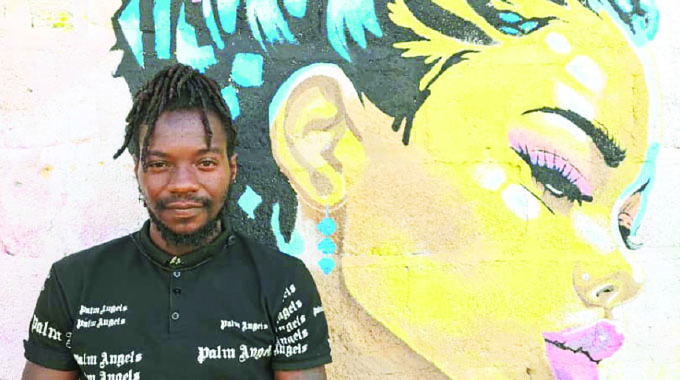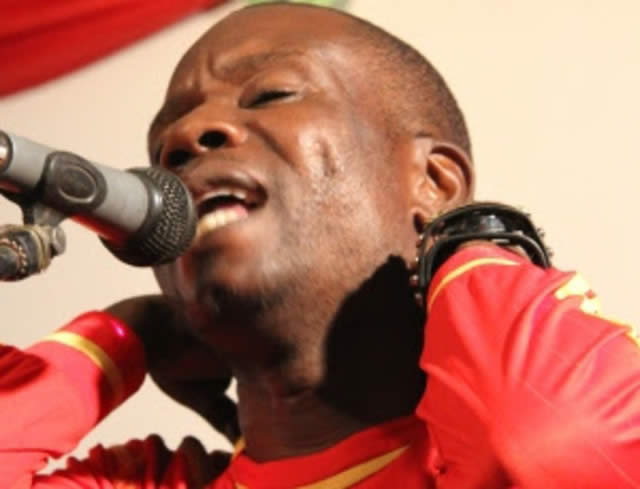Remembering the great Pio Macheka
as if we had lots of time on our hands while they were still alive only to find out that we can no longer employ their services after they are gone.
In 2010, I was surprised to see posters all over the City of Harare advertising a gig at Megga 1 Sports Bar (Pamahuswa) where Tongai Moyo was to perform with Pio Farai Macheka. As far as I knew then Pio Farai Macheka had died long back in October 2008.
On seeing these posters, I asked myself three questions: Has Chimurenga music exponent Pio Farai Macheka risen from the dead?
Will music fans welcome Macheka’s resurrection exactly two years after his death? Or is Tongai Dhewa Moyo brave enough to share the stage with the dead?
While the late Macheka’s music is still as moving as ever, the management at Megga 1 when writing those posters must have been convinced that the musician was still very much alive and that they could use his services.
It was only after their attention was drawn to their mistake that they realised where they had gone wrong.
The musician who was to play alongside Tongai Moyo was not Pio Farai Macheka, but First Farai.
The glaring error by Megga 1 management caused a stir among music fans.
Even the joint owner, Ben Mukandi, was shocked after learning about the error. Later, a correction in the Press was made through another advertisement, which was inserted by the bungling management in which they stated that they regretted the error. “Our adverts should have read First Farai and not Pio Farai Macheka,” they said.
“There was a mix-up in the names. I think the person that I sent there supplied the wrong information. It was a big mistake that should be corrected. How could that happen?” said Mukandi. He apologised to the Macheka family for any harm caused by the costly boob.
This is not the first time that promoters have made mistakes on the promotional material of artistes. In November 2007, posters advertising an Oliver Mtukudzi’s show on his return from an overseas tour stated that Tuku was due to hold a homecoming show backed by The Blacks Unlimited.
Big mistake! The Blacks Unlimited are Thomas Mapfumo’s backing band. Tuku is backed by The Black Spirits.
Pio died in 2008 at the age of 41 after committing suicide over a protracted domestic dispute. He was a gifted composer having made his breakthrough with his popular single, “Karinga Wangu”.
Pio Farai Macheka was born on the May 16, 1963, in a family of five. His family is originally from Chirumanzi (Masvingo).
He grew up in a poor family, and his family struggled to meet his needs and school fees. He started Grade One at Dewure Primary School in Masvingo Province.
He left Masvingo for Harare in 1974 and continued with his education at Glen Norah where he sat for his grade seven in 1977.
After Grade Seven he went to St Peter’s Kubatana where he did his Form One. He could not proceed to Form Two because of financial constraints. So in 1979 he did not go to school because his father was earning very little that he could not continue to support the family.
In 1979, he started selling art and craft materials and did music as a way of earning some money. When he had made enough, he continued with his secondary education through correspondence. He eventually sat for his Ordinary Levels in 1984.
In the year 1986, he formed his first musical group called “The Ancestors Beat Band”.
It consisted of eight members. The band played reggae music.
However, Pio found it difficult to secure a recording deal as record companies were only interested in “Chimurenga” or “Museve” music genres. So he continued performing shows without any recordings.
In 1987, he was successful in recording two traditional seven singles which flopped due to lack of air-play and publicity but he never lost hope.
In the same year, he joined The “Ndemera” Band under the leadership of Phillippa Ndemera, the name to which he added “Ites” to make it “Ndemera-Ites Band”.
He remained with the Ndemera-Ites until 1991. In 1992 his father died.
By then he stopped playing music for a while.
In order to make ends meet, he started to sell some vegetables at a market place in Glen Norah. That very same year he was discovered by a new recording company called RTP (Record and Tape Promotions) who thought he sounded just like the popular musician, Thomas Mapfumo and could be used to popularise Chimurenga beat.
Pio decided to dumb the reggae beat and now concentrated on “Chimurenga” beat.
He formed a new band which he called the “Black-Ites” ( That name was surely influenced by Thomas Mapfumo’s Blacks Unlimited) who comprised Temba Chiramu on lead guitar, Leonard Mawoyo on bass, Tonderai Nhema on rhythm guitar, Porian Mhlanga and Knowledge Sanangura on mbira.
Pio himself handled the vocals with assistance from two backing vocal ladies, Rudo and Felistas.
The sound engineer was Langa and one Martin Chemhere managed the whole band.
With RTP he went on to record an eight-track album. That was his first successful album, which also included the hit song “Karinga Wangu”.
This hit song topped the charts for several weeks and remained on number one for six weeks.
This was the beginning of his success story as he was now playing the songs to packed venues, just like the big names of that time.
Pio was accepted by multitudes of Zimbabweans as the equivalent to Thomas Mapfumo because he sounded like him and sometimes when he was played on radio, people began to think it was Mapfumo.
Added to this, he now started growing dreadlocks just like Mapfumo.
He also started sharing the stage with local and international artistes such as Oliver Mtukudzi, Lovemore Majaivana, Shabba Ranks, Gregory Isaacs, Misty in Roots, Kanda Bongo Man, Freddie Gwala, Alick Macheso, Tongai Moyo, Ambuya Stella Chiweshe, Ambuya Beaula Dyoko and Ephat Mujuru.
Pio’s popularity did not go down well with the Mapfumo camp who belonged to a rival recording company.
They saw him as a threat to their record sales and their own popularity as he had mastered the Chimurenga beat very well.
According to Pio, one afternoon, somewhere in Waterfalls, he was attacked by a group of thugs who he claimed had been sent by the Chimurenga guru, Thomas Mapfumo to assault him and shave off his dreadlocks. He appeared in the Press the next day showing his bald head and attack wounds.
Indeed, that began to put pressure on his career and he began to fizzle out from the music scene. He died in October 2008 aged 41.
Pio will be remembered by many Chimurenga fans through his recordings such as “Mabweadziya”, “Ma- Kitchen Party” and “Mutonga”.
On a different note folks, I would like to remind you that we are still in January and I lost my wallet. So cross me off your “Who to hit for cash” list. You can, however, add me on to your “Hide as soon you see the broke bredren” list.
Nuff respect!
l Fred Zindi is a professor at the University of Zimbabwe. He is also a musician and an author of several books on music. He can be contacted via e-mail on [email protected]





Comments